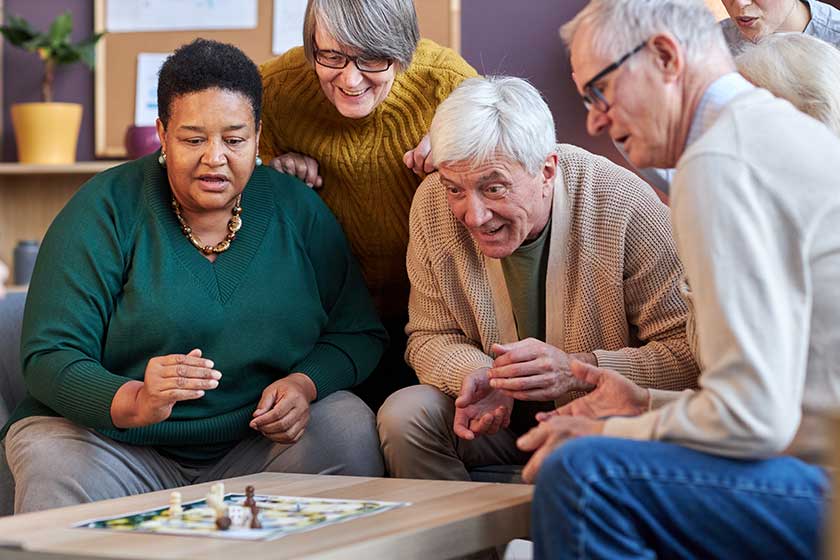Socialization is not just a social activity; it’s a fundamental aspect of maintaining mental health and overall well-being, particularly for seniors considering their living options. In this article, we’ll delve into why is socialization important, the benefits it offers for mental health, and how it can positively impact seniors’ lives.
The Importance of Socialization for Mental Health
Socialization plays a crucial role in preserving mental health and providing a sense of connection, belonging, and purpose. Human beings are inherently social creatures, and meaningful social interactions are essential for maintaining emotional well-being. For seniors, who may face challenges such as loneliness and isolation, regular social engagement becomes even more critical for combating these issues.
Enhanced Emotional Well-Being
Regular socialization contributes to enhanced emotional well-being by reducing feelings of loneliness, depression, and anxiety. Meaningful interactions with friends, family, and peers provide opportunities for sharing experiences, offering support, and fostering a sense of belonging. These positive social connections promote feelings of happiness, contentment, and overall life satisfaction.
Cognitive Stimulation and Brain Health
Engaging in activities and events cognitive function and promotes brain health. Participating in conversations, playing games, and sharing experiences with others provide mental stimulation, which is vital for maintaining cognitive abilities and preventing cognitive decline, such as dementia. Socialization encourages active engagement and fosters a sense of curiosity, creativity, and mental agility.
Physical Health Benefits
Socialization is not just beneficial for mental health but also has positive effects on physical well-being. Participating in health and wellness activities often involves movement and exercise, which are essential for maintaining physical health and mobility. Additionally, social connections can encourage healthy behaviors, such as regular exercise, proper nutrition, and adherence to medical treatments.
Sense of Purpose and Fulfillment
Meaningful social interactions provide seniors with a sense of purpose, meaning, and fulfillment in life. Engaging in social activities, volunteering, and maintaining relationships with others offer opportunities to make a difference in the lives of others and feel valued and appreciated in return. This sense of purpose contributes to overall well-being and a positive outlook on life.
Reduced Stress and Improved Coping Skills
Socialization acts as a buffer against stress and helps seniors develop effective coping skills. Sharing experiences, emotions, and concerns with others provides emotional support and validation, reducing feelings of stress and anxiety. Additionally, having a strong social support network enables seniors to navigate life’s challenges more effectively and adaptively.
Improving Communication Skills and Emotional Intelligence
Regular socialization provides opportunities for seniors to practice and improve their communication skills. Engaging in conversations, sharing stories, and interacting with others can help enhance verbal and nonverbal communication abilities. Additionally, socialization fosters emotional intelligence by allowing seniors to recognize and understand their own emotions as well as those of others.
Socialization is a vital component of maintaining mental health and overall well-being, particularly for seniors exploring their living options. By prioritizing social engagement, seniors can enjoy the numerous benefits of meaningful social interactions, including enhanced emotional well-being, cognitive stimulation, physical health benefits, and a greater sense of purpose and fulfillment. Embracing socialization can lead to a happier, healthier, and more fulfilling post-retirement life. Whether considering communities like Discovery Commons at Wildwood or other living options, seniors can benefit greatly from staying socially connected and engaged.







